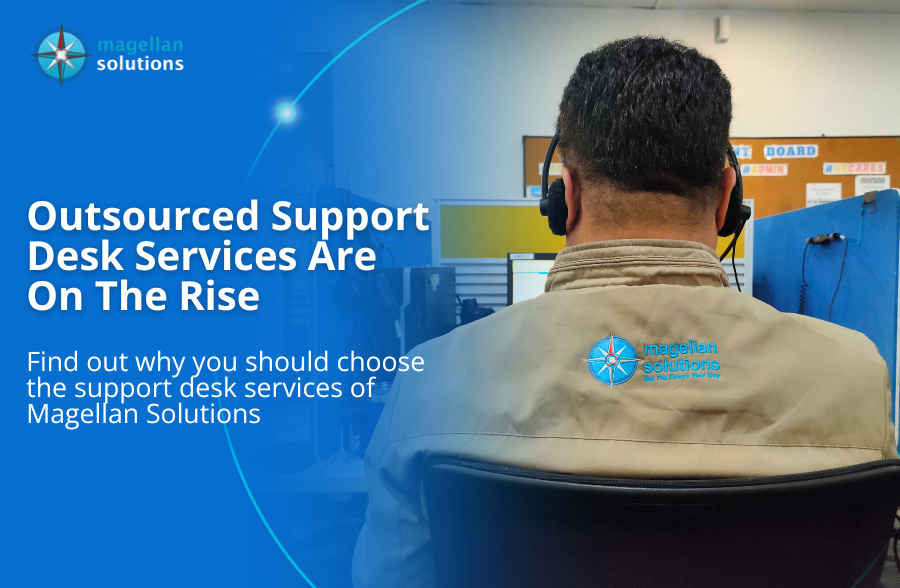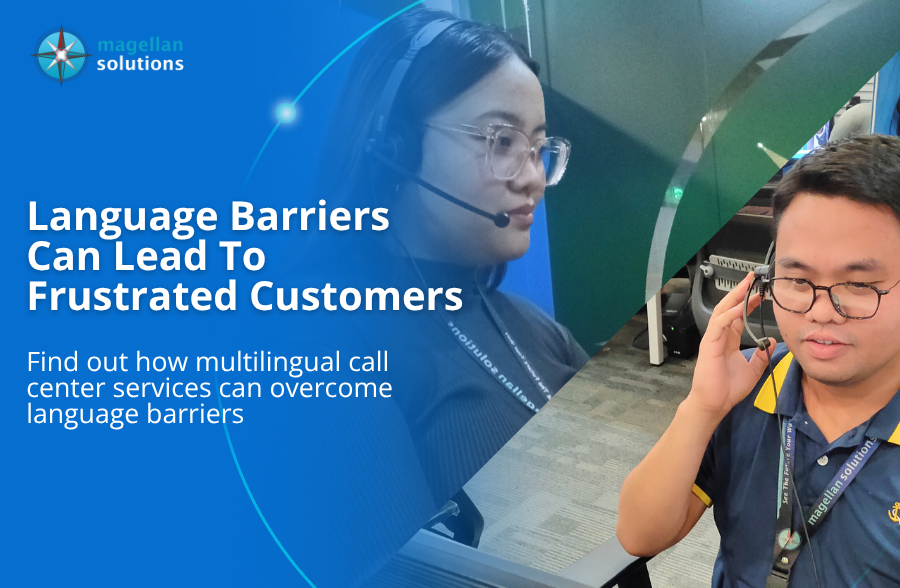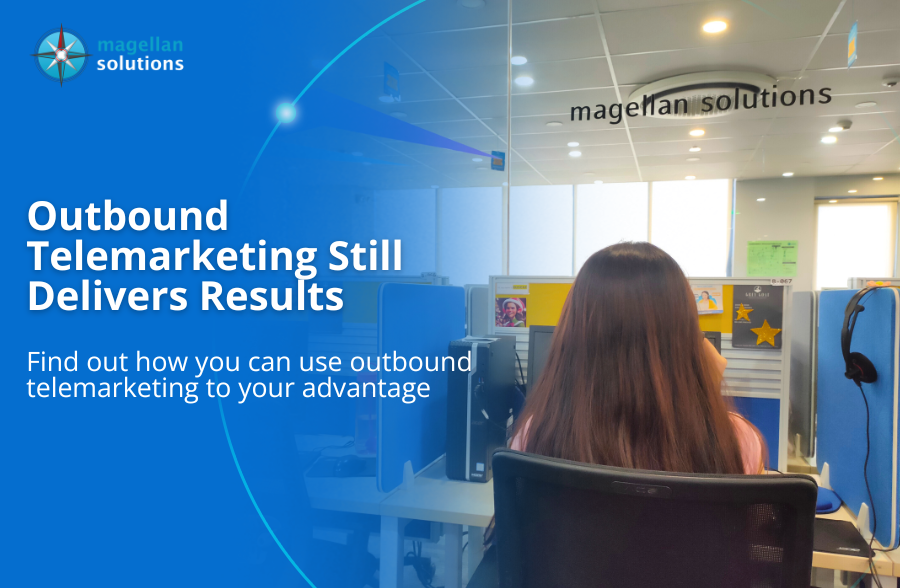Schedule a FREE call with our outsourcing expert now and get a precise quotation that meets your requirements. Don't wait - get started today!
It has become common for businesses today to cut costs by seeking specialized skills from external providers, often called outsourcing. The outsourcing market revenue is predicted to reach $489 billion in 2024, up from $401 billion in 2021, representing a 22% growth.
If you run a small or medium business or a startup, looking at the top outsourcing trends to follow in 2024 is smart. Keeping up with these trends can help you decide if outsourcing is right for your company and how to do it effectively to stay competitive. The outsourcing trends could open up new opportunities to save money, bring in fresh expertise, and help your business succeed.
1. Hyper-automation and Advanced RPA
In 2024, outsourcing companies will combine advanced robotic process automation (RPA) with technologies like artificial intelligence (AI) and machine learning. This will allow them to automate more complex tasks and take on more advanced automation projects for clients in finance, healthcare, supply chain, etc.
The increased automation capabilities of AI/ML models enable the automation of higher-level cognitive tasks that require reasoning, judgment, and processing of unstructured data.
2. Multi-Cloud and Hybrid Cloud Strategies
Companies these days don’t want to put all their eggs in one basket when it comes to cloud computing. Instead of relying on just one cloud provider, such as Amazon Web Services (AWS), Microsoft Azure, or Google Cloud, they use a multi-cloud approach. This means they combine public clouds offered by these big tech companies with private clouds that they manage on their own data centers and servers.
Companies can use their private on-premises clouds for applications dealing with highly confidential or regulated data, such as financial records or healthcare information. This allows them to have tighter security and meet data residency requirements.
Outsourcing providers will offer services that use multiple cloud platforms together. This will allow clients to take advantage of the strengths of different cloud providers and optimize their IT systems based on specific needs. It will provide more flexibility, scalability, and cost-effectiveness, enhancing customer experience.
3. Enhanced Cybersecurity and Data Privacy
With increasing cyber threats and tighter data privacy regulations, such as the General Data Protection Regulation (GDPR) or the Data Protection Regulation, outsourcing firms must prioritize robust data security. This includes advanced threat and data breach detection, encryption, identity and access management, and security audits.
They may offer specialized cybersecurity services like vulnerability testing, incident response planning, and regulatory compliance. Proven security credentials will be a key requirement for clients evaluating outsourcing options to protect their data and systems.
4. Nearshore and Onshore Outsourcing for Agility
Companies prefer to outsource to nearby locations or within the same country instead of distant places. Outsourcing to a nearby country is called nearshore outsourcing, and outsourcing within your country is called onshore or domestic outsourcing.
This will reduce time zone differences, improve communication, provide better cultural understanding, and promote in-person interaction. These advantages make nearshore and onshore outsourcing very helpful for companies that value agility—the ability to move quickly and be flexible. It’s also preferable when close collaboration and partnerships are essential between the company and the outsourcing provider.
The COVID-19 pandemic prompted many businesses to explore remote work arrangements. As we move into 2024, an increasing number of companies are also recognizing the viability of remote work to take advantage of its potential benefits, such as reduced costs.
5. Talent Analytics and Strategic Workforce Management
Outsourcing companies need talented and productive employees to serve their clients well. To build skilled and productive talent pools, outsourcing companies will invest in talent analytics platforms that use data and AI/ML models. Talent analytics involves collecting and analyzing employee data, such as skills, experience, performance metrics, etc.
Outside talent analytics, outsourcers will also focus on strategic workforce planning and management. This means forecasting what type of skills and how many people they will need to meet their clients’ future needs. It involves assessing current skills available, identifying gaps, and creating plans to bridge them through hiring, training existing staff with new skills (reskilling), or other workforce management initiatives.
6. Industry-specific outsourcing and Vertical Specialization
Instead of offering generic, one-size-fits-all services, many outsourcing firms are choosing to specialize in serving specific industries or verticals. For example, they may focus exclusively on healthcare, finance, manufacturing, retail, or other major industries.
These outsourcing providers gain specialized knowledge about each sector by specializing in a particular industry vertical, enabling them to offer tailored solutions that provide more value to their clients.
Through industry-specialized outsourcing partners, companies can access external expertise optimized for their specific business environment and requirements. This can drive efficiencies, compliance, and competitive advantages for the client organization.
7. Sustainability and Environmental, Social, and Governance (ESG) Initiatives
Nowadays, companies are becoming more conscious of their environmental impact, social responsibility, and governance standards. Outsourcing companies must adapt by increasingly focusing on environmental, social, and governance (ESG) initiatives to align with clients’ values and priorities around sustainability and responsible business practices.
On the environmental side, they are adopting eco-friendly operations to reduce their carbon footprint, improve energy/resource efficiency, use renewable energy sources, and manage waste properly.
Initiatives in the social aspect include ethical labor practices, diversity/inclusion programs, community development, transparent supply chains, and employee well-being. Good governance covers data privacy, cybersecurity, anti-corruption policies, risk management frameworks, and responsible corporate leadership.
Responsible outsourcing companies like Magellan Solutions participate in yearly social activities to give back to the community. “Corporate social responsibility is close to our hearts, particularly environmental sustainability. We actively support nonprofit organizations focused on this cause. Beyond funding, our initiatives extend to tree planting and mangrove plantation projects, especially in areas like the Philippines, where typhoons are a significant threat. These efforts reflect our commitment to the environment and aim to mitigate natural disaster impacts,” CEO Fred Chua emphasizes.
8. Metaverse and Extended Reality (XR) Outsourcing
The metaverse refers to digital virtual worlds in which people can explore and interact. Virtual reality (VR) creates fully computer-generated environments that feel realistic when wearing a VR headset. Augmented Reality (AR) adds digital objects and information to the real-world view on phones/tablets.
More businesses want to use these technologies alongside AI and machine learning for employee training in virtual environments, letting customers see products virtually before buying and providing fun interactive digital experiences.
Some outsourcing companies will start offering specialized services to help businesses adopt metaverse and extended reality (XR) technologies. These include building metaverse platforms, creating VR/AR apps and content, and advising companies on how to use these new technologies.
9. Multi-Vendor Outsourcing
In 2024, businesses are expected to adopt multi-vendor outsourcing strategies to benefit from different outsourcing providers’ specialized expertise and capabilities. Companies partnering with multi-outsourcing partners allow them to benefit from the strengths and abilities of these service providers for a higher quality of service.
Rather than relying on a single outsourcing partner to handle all their outsourcing needs, businesses will partner with multiple outsourcing companies, each excelling in specific functional areas or niche domains.
The multi-vendor approach recognizes that no single outsourcing provider can excel at every type of service. However, managing multiple outsourcing partners is quite complicated for start-ups or small businesses. Businesses must have polished vendor management processes and effective collaboration mechanisms to ensure that partnering with a third-party service provider is worthwhile.
10. Additive Manufacturing (3D Printing)
Additive manufacturing, also known as 3D printing, is rapidly gaining traction across various industries due to its ability to produce complex geometries, enable mass customization, and reduce waste compared to traditional manufacturing methods. However, investing in 3D printing technologies and materials is not a smart move for businesses, as 3D printing is not a core process with substantial upfront investments that they have to spend.
3D printing is also a skill. Startups or those with a low volume demand for this service usually lack in-house capacity and expertise. With this, outsourcing providers capable of having the equipment, materials, and expertise come in. Outsourcing additive manufacturing allows access to the latest printing technologies, materials, and processes without major capital costs.
Stay Ahead of the Curve with Magellan Solutions’ Top Outsourcing Trends Expertise!
Magellan Solutions has over 18 years of experience providing outsourcing services. This expertise allows them to grow continuously and meet the needs of their clients. As top outsourcing trends in 2024, like advanced automation, using multiple clouds, improved cybersecurity, and adopting new technologies, become important, Magellan Solutions is well-prepared to guide you.
Work with Magellan Solutions, a responsible and forward-looking outsourcing company, to take advantage of the top 2024 outsourcing trends and help your business succeed. Our focus on sustainability, developing talented employees, and deep industry knowledge ensures you receive customized solutions for better customer service. These solutions can reduce costs, increase efficiency, and give you an advantage over competitors.
Contact us today to discuss how their outsourcing expertise can support your business goals.

















